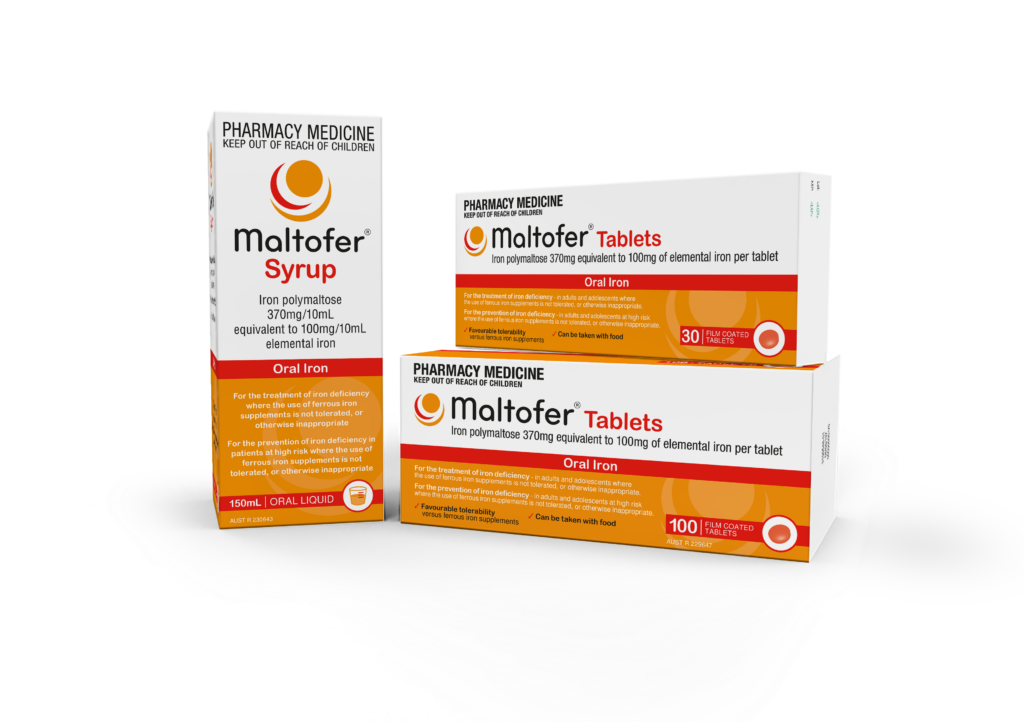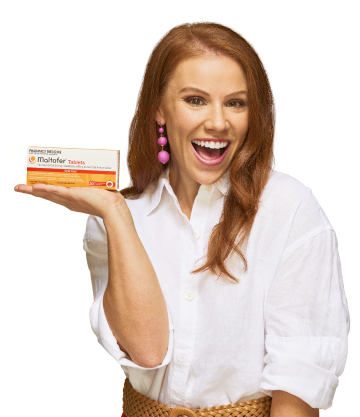Pregnancy is miraculous … but demanding. And keeping up with your nutritional needs throughout your pregnancy demands thought and effort.
Amongst the core nutrients you need during pregnancy, iron stands out. It’s critical in maintaining good health for you and your baby. And low iron in pregnancy is a common — yet manageable — condition.
This guide delves into the importance of iron during pregnancy, as well as explaining why iron deficiency is a common concern for pregnant women.
Plus, there’s helpful advice for expecting mums to manage iron intake throughout pregnancy.
Why do I need iron while pregnant?
Iron plays a pivotal role in the human body. It’s a key component of haemoglobin, the protein in red blood cells. You need this protein to carry oxygen from the lungs to the rest of your body.
When you’re expecting, your blood volume increases by up to 50% to support your growing baby. For a larger blood volume, you need more red blood cells. That means you need more iron to support the increased blood volume.
Iron has many other roles in the human body, such as supporting your muscles and immune system. Iron is also essential to the growth and health of your unborn child.
To meet your iron needs, you need to increase your dietary intake of iron. Humans can only get the iron we need from the food we eat. You need to consume around 27mg of dietary iron daily to meet your iron needs during pregnancy. This is nearly double the iron you need when you’re not pregnant.
Is there a relationship between iron deficiency and pregnancy?

Iron deficiency is a common concern for pregnant women. Between 11 and 50 % of women in Australia will have very low iron levels during pregnancy.
This condition happens when you don’t have enough iron in your body to meet the increased demands to make more blood. Since pregnant women have the highest recommended daily iron intake level of any adult, it’s easy to see how iron deficiency becomes an issue for so many.
To avoid adverse health effects of low iron, you need to boost the amount of iron you consume each day.
It’s possible to meet this increased requirement by adding in some more iron-rich foods to your regular diet. You may also need to use iron supplements at your doctor’s direction.
Boosting iron levels with iron-rich foods
If you need to boost your dietary iron levels, you can simply add some more of the following iron-rich foods to your daily menu:
- Red meat
- Fish
- Chicken
- Legumes
- Nuts
- Green leafy vegetables
- Dried fruits
Iron from meat, poultry and fish is most easily absorbed into your body.
Iron supplements
Iron supplements may be appropriate for people with an iron deficiency that can’t be corrected through diet alone. Iron deficiency is confirmed through a blood iron level test.
Iron supplements contain concentrated forms of iron that can boost the daily iron intake and help correct iron deficiency.
Be aware that the amount of iron in supplements varies a lot. Not all iron-containing supplements have enough iron to make a difference if you are iron deficient. Be sure to check the amount of elemental iron in a supplement before you use it.

Maltofer contains 100 mg of elemental iron per dose and is for the treatment of iron deficiency in adults and adolescents where the use of ferrous iron supplements is not tolerated, or otherwise inappropriate. Ask your doctor or pharmacist if you’re not sure if your supplement has the amount of elemental iron you need.
Only use iron supplements on the advice and direction of your doctor.
What should I do if I don’t think I’m getting enough iron?
If you’re unsure you’re getting enough iron, speak with your doctor. They may recommend a blood test to determine your iron levels. Your doctor knows your health history, so they are best placed to provide a personalised strategy to manage your iron levels.
If your doctor recommends an iron supplement during pregnancy, there are many options. Ask your doctor for advice about which iron supplement may be best for you.
Bear in mind that some iron supplements may cause constipation. In that case, an iron supplement like Maltofer could help.
Clinical studies have shown that Maltofer (containing iron as iron polymaltose) corrects iron deficiency in pregnant women where ferrous iron supplements can’t be used. And it does so with significantly fewer gastrointestinal side effects than ferrous iron supplements.
For over 50 years, Maltofer has been recommended worldwide as a reliable option for correcting iron levels in pregnant women.
Remember, too much iron can be harmful. That’s why it’s vital to use iron supplements to manage your iron intake during pregnancy under professional guidance only.

ALWAYS READ THE LABEL AND FOLLOW THE DIRECTIONS FOR USE.
Maltofer is for the treatment of iron deficiency in adults and adolescents where the use of ferrous iron supplements is not tolerated, or otherwise inappropriate.
For the prevention of iron deficiency in adults and adolescents determined by a medical practitioner to be at high-risk, where the use of ferrous iron supplements is not tolerated, or otherwise inappropriate.
If you have iron deficiency, your doctor will advise you whether an oral iron treatment is required.
Maltofer® is a registered trademark of Vifor (International) Inc used under licence by Aspen Pharmacare Australia Pty Ltd.




